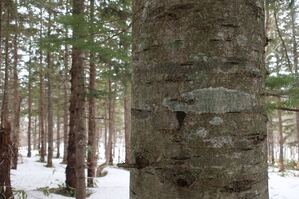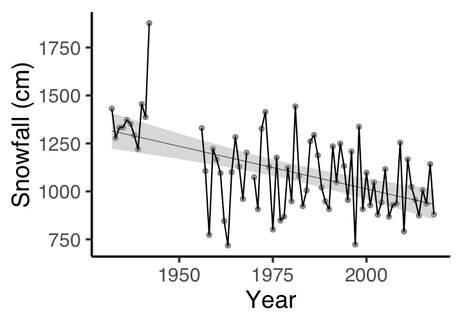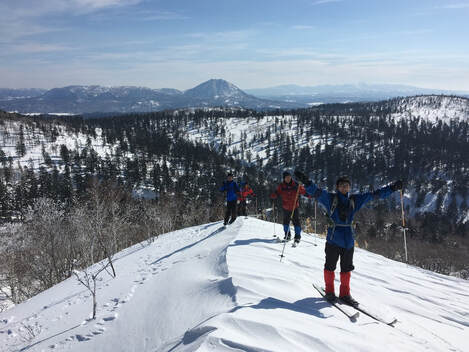In the middle of snowy forest, what to learn?
* This course is for 3rd-4th year undergraduate students and master's students
At high latitude, substantial part of the year is characterized as "Winter". For the severe cold temperature and frost event, organism develop unique strategy to survive and are sometime even active in sub-zero temperature, to drive biogeochemical cycle in forest ecosystem.
On the other hand, winter climate is changing worldwide, and its influence on the structure and function of forest ecosystem is being concerned. However, as compared to the influence during growing season, that in winter is less investigated.
At high latitude, substantial part of the year is characterized as "Winter". For the severe cold temperature and frost event, organism develop unique strategy to survive and are sometime even active in sub-zero temperature, to drive biogeochemical cycle in forest ecosystem.
On the other hand, winter climate is changing worldwide, and its influence on the structure and function of forest ecosystem is being concerned. However, as compared to the influence during growing season, that in winter is less investigated.
Fig: Long-term trend of snowfall in northern Hokkaido (modified from Makoto et al. 2014)
How do forest organisms live in winter?
How do biogeochemical cycles proceed under snow?
How are these being influenced by climate change?
To enhance our understanding to these questions, the students will learn basic and applied knowledge about snow function, plant ecology, soil nutrient dynamics, carbon flux and silvicultural activity in winter forest. In the end, the students will conduct a group discussion and presentation about the influence of the winter climate change in forest ecosystem.
As you know, Hokkaido is beautiful place for winter activity. You will have chance to enjoy ski touring during the field course in the middle of pristine forests of northern Hokkaido.
The beginner of the ski is most welcome!
Lecturers (for the details of each lecturer, please click name)
Reiner GIESLER Professor of Umeå University, Sweden
(Biogeochemistry, Keywords: interaction between terrestrial & aquatic ecosystem, carbon flux, phosphorous)
Kentaro TAKAGI*
(Biogeochemistry, Keywords: carbon flux, dead wood, forest management, remote sensing)
Karibu FUKUZAWA*
(Biogeochemistry, Keywords: fine roots, nitrogen cycling, dwarf-bamboo)
Jun UETAKE *
(Microbiology, Keywords: microbial ecology, environmental DNA, bioaerosol)
Makoto KOBAYASHI
(Tree Ecology, Keywords: tree ecology, plant and soil interaction, disturbance)*
*Hokkaido Univ. Staffs
How do forest organisms live in winter?
How do biogeochemical cycles proceed under snow?
How are these being influenced by climate change?
To enhance our understanding to these questions, the students will learn basic and applied knowledge about snow function, plant ecology, soil nutrient dynamics, carbon flux and silvicultural activity in winter forest. In the end, the students will conduct a group discussion and presentation about the influence of the winter climate change in forest ecosystem.
As you know, Hokkaido is beautiful place for winter activity. You will have chance to enjoy ski touring during the field course in the middle of pristine forests of northern Hokkaido.
The beginner of the ski is most welcome!
Lecturers (for the details of each lecturer, please click name)
Reiner GIESLER Professor of Umeå University, Sweden
(Biogeochemistry, Keywords: interaction between terrestrial & aquatic ecosystem, carbon flux, phosphorous)
Kentaro TAKAGI*
(Biogeochemistry, Keywords: carbon flux, dead wood, forest management, remote sensing)
Karibu FUKUZAWA*
(Biogeochemistry, Keywords: fine roots, nitrogen cycling, dwarf-bamboo)
Jun UETAKE *
(Microbiology, Keywords: microbial ecology, environmental DNA, bioaerosol)
Makoto KOBAYASHI
(Tree Ecology, Keywords: tree ecology, plant and soil interaction, disturbance)*
*Hokkaido Univ. Staffs



